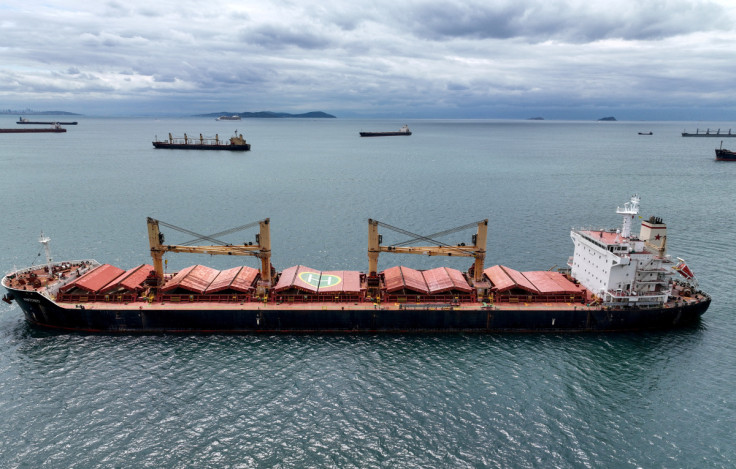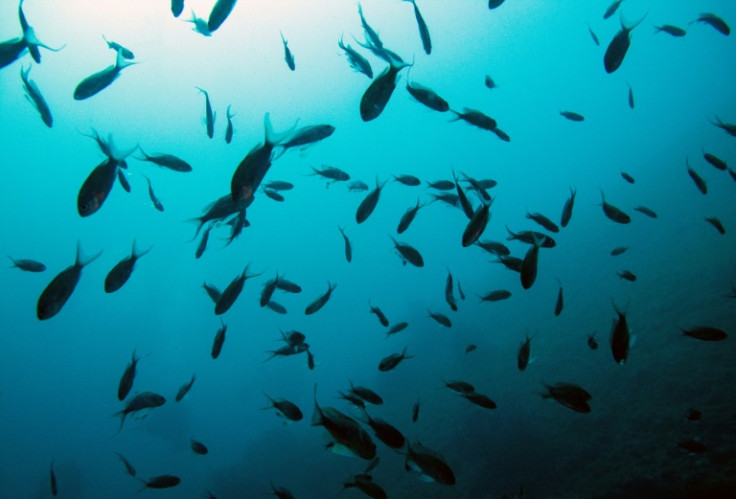Deep Sea Mining Decision Looms, Pitting Green Energy Against Environmental Protection

Delegates to the United Nations' International Seabed Authority (ISA) resumed discussions in Jamaica on the regulation and authorization of large-scale deep sea mining operations.
After a magnitude 5.4 earthquake disrupted the first day of the agency's conference last week, pressure is mounting from various stakeholders for the ISA to make a decision by Wednesday on whether to finalize a regulatory framework to facilitate deep sea mining or to enforce a global moratorium on the practice so that further environmental impact studies can take place.
The agency doesn't have an obligation to make a decision during the conference this week.
Deep sea mining licenses in international waters fall under the ISA's jurisdiction; 21 private and public sector entities currently have contracts for the exploration of undersea mineral resources. The regulatory framework to begin issuing production licenses hasn't been established.
Canadian corporation The Metals Co., or TMC, which controls three deep sea exploration contracts registered with the ISA, said in an emailed response to IBTimes that it intends to submit its application for a mining license "following the July 2024 meeting of the ISA."
The ISA's pending decision poses substantial ramifications for mineral supply chains, the transition to renewable energy sources, and the long-term fate of global marine ecosystems.
The Key To The Energy Transition?
Deep sea mining operations sweep the ocean floor for polymetallic nodules: potato-sized metallic lumps composed of mineral sediments. They can be found at any depth, but the highest concentrations have been found between 4,000 meters and 6,000 meters from the surface, the ISA says.
Polymetallic nodules contain exceptionally high levels of lithium, nickel, cobalt, copper and magnesium—minerals critical for the construction of batteries used in electric vehicles and grid-scale energy storage systems. They are processed into applicable mineral products using far less environmentally damaging methods.
The ISA estimates that the Clarion-Clipperton Zone, an area in the Eastern Pacific Ocean between Hawaii and Mexico and home to 17 of the existing 21 ISA exploration contracts, contains more of the resources found in its polymetallic nodules than in all deposits ever discovered on land, combined. The region is estimated to contain more than double the world's current nickel reserves and over 40 times the current cobalt reserves.
The global demand for battery minerals is projected to skyrocket in the coming decades as the world rapidly transitions to renewable sources of energy generation and consumption. Worldwide yields from existing and proposed mining projects risk falling significantly behind global demand for battery minerals like nickel, cobalt and lithium by 2030, McKinsey warned.
With abundant undisturbed mineral resources sitting on the seabed in the Clarion-Clipperton Zone and elsewhere, stakeholders like TMC argue that the transition to green and renewable energy systems may be entirely impossible without large-scale deep sea mining.
ISA representatives didn't respond to an emailed request for comment from IBTimes.
Deep Sea Mining's Controversial Impact

Despite the pressing need to fuel the global transition away from fossil fuel-oriented energy systems, many experts and environmental advocates have warned that the effects of wide-scale deep sea mining have not yet been fully measured, and the practice should not be permitted until the industry has proven that its activities have minimal impact.
"Right now, there's not enough scientific understanding of the marine environment, and we need that understanding in order to form a strong, effective framework to prevent the adverse impacts of mining activities on the marine environment," a U.S. State Department official told Politico in July, asking not to be named.
The Clarion-Clipperton Zone, at the center of the issue of deep sea mining regulation, is a remote stretch of international waters whose native ecosystem has remained completely isolated for nearly all of human history. Those wary of rapidly beginning large-scale mining have voiced concern that the noise, sediment plumes, and tailings generated by deep sea mining operations could destroy bottom-dwelling populations of fish, mollusks, plankton and other marine life critical to the region's biodiversity, possibly even triggering a mass extinction event in the Pacific.
"While there has been much speculation, multiple lines of evidence show how far activist claims about impacts have been exaggerated," Gerard Barron, TMC's Chief Executive Officer, told IBTimes in an emailed statement.
The company shared a study released by MIT and Scripps Institute of Oceanography researchers in September 2022, which found that 92% to 98% of the sediment kicked up from a pilot mining operation in the Clarion-Clipperton Zone remained less than two meters off of the sea floor.
Although TMC acknowledged that deep sea mining's impact may not be negligible, the company's view it as a preferable alternative to existing mining practices.
"When it comes to metal extraction there is no free lunch, but if our goal is for the least planetary impact, then it makes sense to go where there's the least amount of life, not the most," Barron said.
Looming Decision
This week's meeting of the ISA Council, which consists of 36 signatory members and is currently led by delegations from China, Russia, Italy and Japan, could potentially decide whether to proceed with issuing deep sea mining licenses, or whether to follow the lead of France and the United Kingdom by imposing a moratorium while the industry waits for further environmental impact studies.
The ISA Council can reject mining applications only by a majority of two thirds of present and voting members. Voting intention and attendance for the council decision remain unclear, as of Monday afternoon.
It may happen on Wednesday or sometime in 2024. The ISA ultimately must choose between authorizing the key to global-scale green energy at the potential expense of a significant marine ecosystem, or safeguarding the seafloor while missing the opportunity to supply the materials needed to wean the world off of fossil fuels.
© Copyright IBTimes 2025. All rights reserved.






















